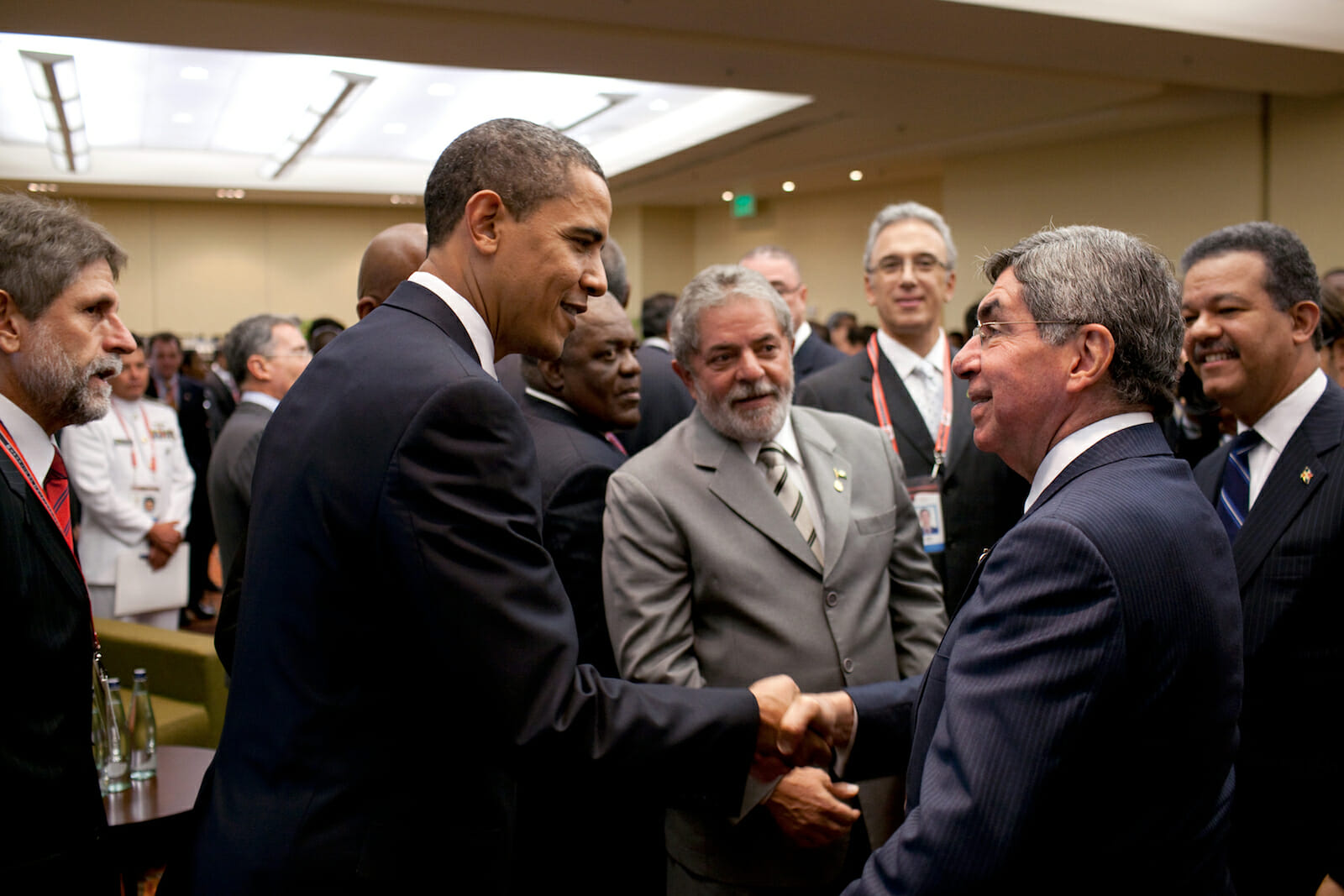
Revisiting Helms-Burton
In 1996, the US government enacted the Helms-Burton Act in an effort to tighten the embargo on Cuba and bring about the regime change that the Americans have long wanted. Sixteen years later, while Fidel Castro has stepped aside from his official role as Cuban president, the desired regime change has not taken place. Raul Castro has made some changes in the government-controlled economy, but no changes have been forthcoming regarding democracy or human rights. In fact, in testimony before the House Foreign Relations Committee, Normando Hernandez Gonzalez, a Fellow at the National Endowment for Democracy, spoke of over 600 arbitrary detentions in January alone by the Cuban government.
Perhaps the time has come to revisit the Helms-Burton Act and evaluate what can be done moving forward. As stated, it was “an act to seek international sanctions against the Castro government in Cuba” and to plan for a democratic transition. The purpose of Helms-Burton, also known as Cuban Liberty and Democratic Solidarity Act, was to “assist the Cuban people in regaining their freedom and prosperity, as well as joining the community of democratic countries that are flourishing in the Western Hemisphere.”
At the time, this seemed like a very plausible scenario. Congress had found that the Cuban economy had experienced a massive contraction to the tune of around 60% during the previous five years. This was the result of “the end of its subsidization by the former Soviet Union of between 5 billion and 6 billion dollars annually,” economic mismanagement, and the “extreme decline in trade between Cuba and the countries of the former Soviet bloc.”
In Cuba, this became known as the ‘Special Period’ and was marked by societal regression, food rationing, and the largest migration of Cubans to the US since the 1960s. Knowing that, it was logical for the US government to assume that the time was right to tighten the noose on the Castro regime and finally drive them out. Cuba was on the brink of complete economic ruin and fear of the totalitarian regime could keep the people from absolute rebellion for only so long. Helms-Burton would be the final nail in the Castro coffin.
The Cuban government would collapse and if they tried to hold onto power by force, the US government could then consider intervention on a humanitarian basis. What no one could predict was that Fidel Castro’s mild economic reforms of the mid-1990s; from allowing a small number of private businesses to legalizing the US dollar; would buy him just enough time. Not many could have foreseen that by 1999, Castro’s Cuba would have another oil-rich benefactor come along to replace the Soviet Union. Hugo Chavez’s Venezuela began to provide the same type of support to Cuba that had helped fill the government coffers for years.
In addition, Chavez and Cuba created their own economic alliance, ALBA, in 2004 that has now grown to include eight Latin American and Caribbean nations with two more considering membership. It is obvious then that the conditions that existed when Helms-Burton was passed have now ceased. The massive decline of economic stimulus provided by the Soviet Union and its satellites has been replaced by Venezuela and a new organization of cooperative states.
Additionally, we must look at the fact that Helms-Burton sought “international sanctions” as a way of isolating and economically starving Cuba. Events of the last decade dramatically changed the landscape surrounding economic sanctions. First and foremost, the economic conditions that existed in the United States in the 1990s do not exist anymore. The global economic playing field has become much more competitive. In the 1990s, the US could rely on its regional hegemony to institute rather effective sanctions.
While the US is still the greatest hemispheric power, the power dynamic has been tempered by the growth of nations like Brazil. While most of the world has spent bulk of the last ten years mired in economic turmoil, Latin America has been relatively prosperous. Prosperity and their willingness to engage with the Cuban government for trade has negated the effects that were desired when the US was seeking international sanctions.
Investment in Cuba has been coming from ALBA, Caribbean neighbors, and most notably as of late, Brazil. President Dilma Rousseff recently completed an official government visit to the island and revealed that Brazil is prepared to invest in Cuba’s sugar industry and will help renovate the port of Mariel to the tune of $800 million. Brazil’s government is also willing to extend $550 million worth of credit to Cuba for food purchases and agricultural equipment.
Investment goes well beyond regional neighbors however. After Venezuela, Cuba’s largest trading partner is China. They have signed numerous trade and investment agreements over the last few years that include public health, telecommunications, interest-free loans, and oil exploration. China, along with Spanish oil company Repsol, is one of the many partners that Cuba has in its new deepwater drilling project in the Florida Straits.
At this point, it is becoming clearer that the isolation from the world that the US was aiming for is not achievable. The only isolation that is occurring is not Cuba from the world, but the United States from Cuba. This is not to say that the Helms-Burton Act should be repealed immediately because it is ineffective. The purpose was never solely economic. It was designed to force regime change as peaceably as possible. It was intended to help the Cuban people regain their “freedom and prosperity.” As the Act also says, the US “has shown a deep commitment, and considers it a moral obligation, to promote and protect human rights and fundamental freedoms.”
The moral obligation is to promote human rights and democracy and neither can be done if the United States is the only voice that the Cuban people do not hear. The need to facilitate interaction between the US and the Cuban people has been expressed by Cuban dissident Oscar Espinosa Chepe.
In June of 2011, responding to the proposal by Rep. Mario Diaz-Balart (R-FL) to roll back travel restrictions and remittances to Cuba, Chepe argued that the continued isolation of Cuba benefits “the most extreme sectors of the regime in Havana to justify repression and to maintain Cuba as a closed fortress alleging the danger of the foreign threat.” He goes on to say that the relationships that do exist between Cubans on both sides of the Straits, despite the efforts of both governments, “have created a flow of information and democratic experiences that has become a significant political factor.”
If the obligation is to promote and protect human rights, then the US needs to engage and support the dissidents in the country. The argument for a free society that respects human rights is eventually won when a dialogue exists between those in favor of that open society and those opposed to it. The question that now stands before the United States regarding Cuba is not whether we lift the trade embargo or not. It is not whether we repeal the Helms-Burton Act or not. Those questions are secondary. If the US is really interested in helping the Cuban people, then the first question must be how we can help the Cuban people achieve their freedom and prosperity. The end result that the US wants is a free and democratic Cuba.
In revisiting the Helms-Burton Act, we see that the strategies employed so far have not brought that result any closer. Therefore, a policy that is smarter, more directed towards those goals and can create a more unified coalition of support is the best move for the US and for the people of Cuba. The time has come to take a fresh look at US-Cuban relations.
